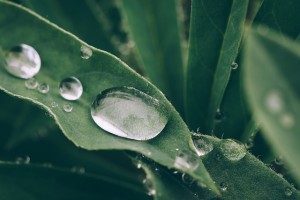Half of the surface of the Netherlands – literally: the "low lands" – is below sea level: "zeeniveau". The sea is everywhere in Dutch history. In 1953, a large part of the province of Zeeland was flooded, killing over 1800 people. After this tragedy, the Deltawerken were constructed.
Note the plural of "zee": "zeeën". If a syllable ending on an -e or -ie is stressed, the plural gets an extra "e". Since "zee" has only one syllable, the plural gets an extra " e".
Examples:
– "De woeste zee sloeg tegen de rotsen."
("The savage sea beat against the rocks.")
– "Heb je zin om naar zee te gaan? Het is zo’n lekker weer!"
("Do you feel like going to the sea? The weather is so nice!")
– "De zee bij Capri is prachtig groenblauw."
("The sea near Capri is beautifully green-blue.")
– "Dit huis heeft echt een zee van ruimte binnen."
("This house is really spacious inside.")
Expressions:
– "Water naar de zee dragen": to carry coals to Newcastle, to perform a useless activity.
– "Zo rijk als de zee diep is": filthy rich. Lit.: as rich as the sea is deep.
– "Een echte schipper bevaart ook de Rode Zee": <informal> a real man always makes love to his woman, even when she’s having her period. Lit.: a real skipper also sails the Red Sea.
– "Met iemand in zee gaan": to do business with someone, to cooperate with someone. Lit.: to go into sea with someone.
– "Recht door zee": honest, straight forward. Lit.: straight through sea.
Related words:
– Water: water [noun] [water, de wateren].
– Watersnood: flood, inundation [noun] [de watersnood, de watersnoden].
– Overstroming: flooding [noun] [de overstroming, de overstromingen].
– Zeewater: sea water [noun] [het zeewater, <no plural>].
– Oceaan: ocean [noun] [de oceaan, de oceanen].
– Golf: wave [noun] [de golf, de golven].
Extra:
The Normaal Amsterdam Peil (lit.: Normal Amsterdam Level, usually abbreviated to NAP) is the reference to which altitude measurements in the Netherlands are related. For ease of use, the NAP is alligned with the average sea level, but in fact it’s higher.




 A “druppel” is a drop of any liquid. A quite famous expression with “druppel” is “de druppel die de emmer doet overlopen” (“the last drop makes the cup run over”), see
A “druppel” is a drop of any liquid. A quite famous expression with “druppel” is “de druppel die de emmer doet overlopen” (“the last drop makes the cup run over”), see 